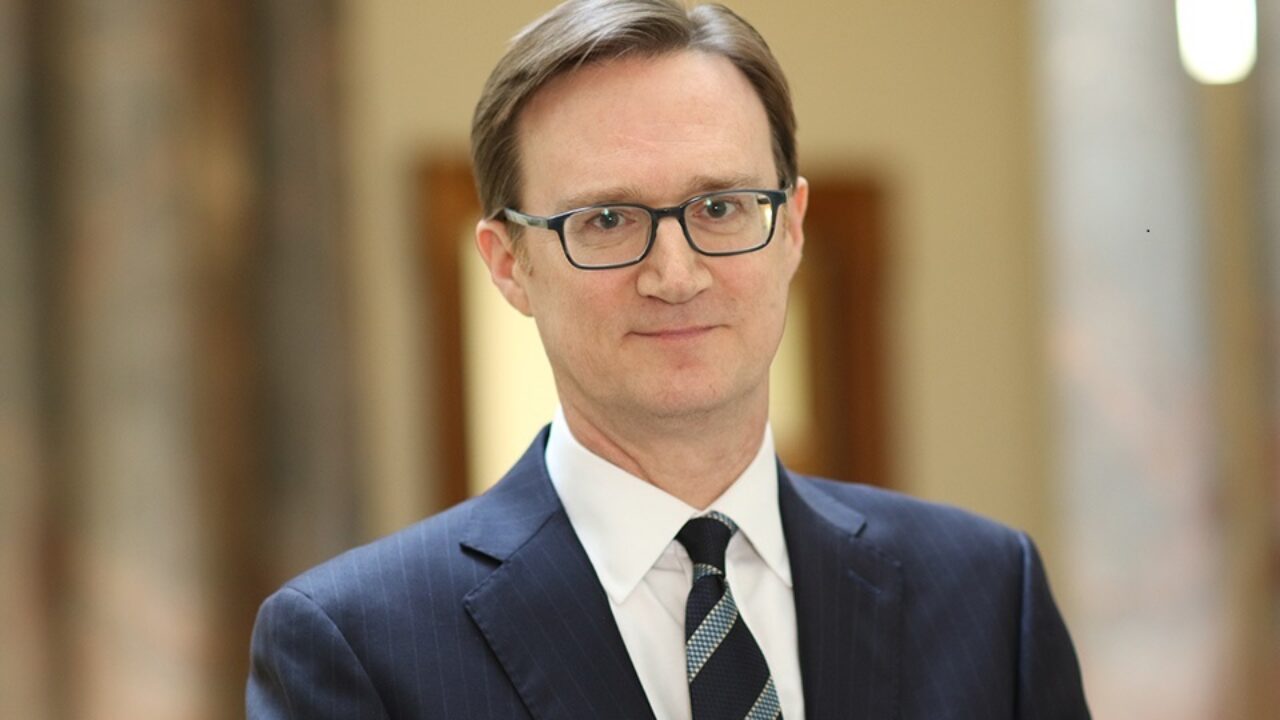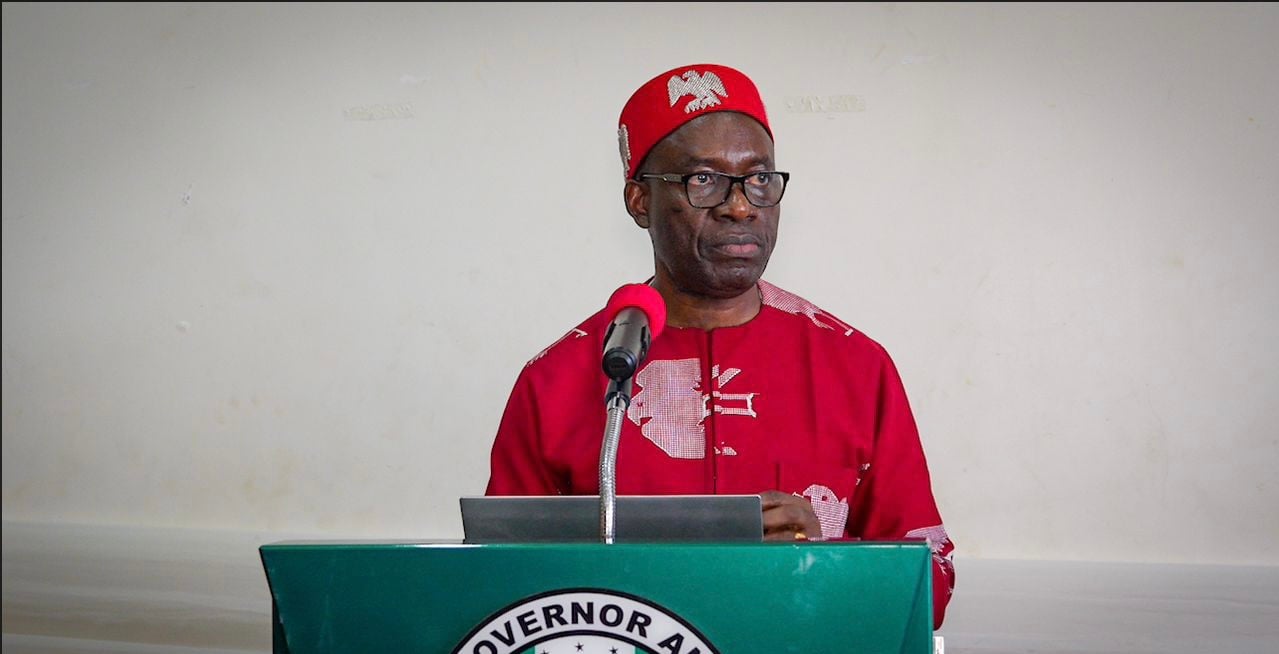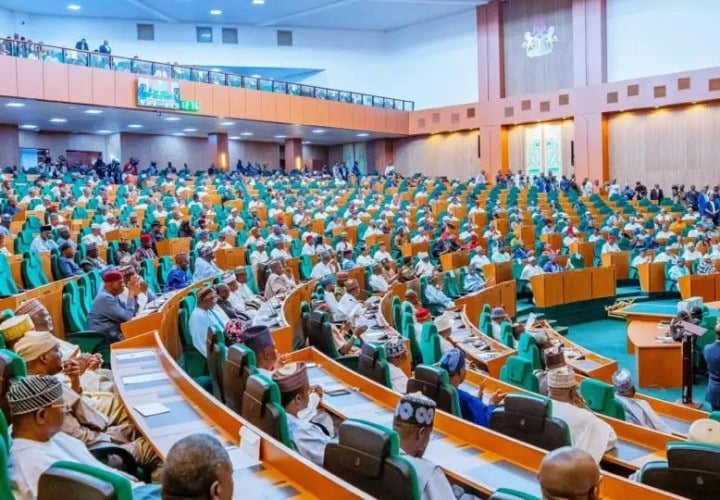The United Kingdom has reaffirmed its commitment to deepening cooperation with Nigeria in tackling the growing threat of cybercrime and digital insecurity, pledging technical support and intelligence sharing under an ongoing security partnership.
Speaking at the inaugural seminar on Anticipatory, Cyber, and Digital Diplomacy for Strengthening Nigeria’s Foreign Policy in Abuja on Tuesday, the British High Commissioner to Nigeria, Richard Montgomery, said the UK was “very pleased” to be one of the sponsors of the event, noting that both countries had already recorded “shared successes” in tackling cyber fraud and crime.
Montgomery disclosed that the UK–Nigeria partnership, formalised under a Memorandum of Understanding on cybersecurity signed last year, covers five key areas: threat hunting, cyber threat intelligence capability, identification of critical national infrastructure, digital forensics, and national incident response planning.
“These are fundamental to building government cyber capabilities and effective international cyber diplomacy,” he said, while warning that new tools such as artificial intelligence risk “turbocharging” cyber threats ranging from disinformation to hate speech.
While stressing that Nigeria would shape its own sovereign decisions in cyberspace, Montgomery said the UK was ready to share lessons from its Foreign Office and from partnerships with research institutions, private sector players and universities to help Nigeria build a resilient digital ecosystem.
The Minister of Foreign Affairs, Ambassador Yusuf Tuggar, welcomed the UK’s collaboration, stressing that Nigeria must act with urgency to position itself as a “principled, capable and forward-looking actor in the evolving global digital order.”
Tuggar also announced the creation of a Cyber Diplomacy Unit within the Ministry of Foreign Affairs to coordinate Nigeria’s international cyber engagements.
He said the unit would work closely with partners such as the UK while also training a new generation of African cyber negotiators and championing ethical digital governance.
“We must lead Africa’s digital future,” Tuggar declared, adding that Nigeria’s cyber diplomacy strategy would emphasise regional collaboration, inclusion of women and youth, and engagement with the private sector and diaspora.
Tuggar said the country must not remain a passive observer in a rapidly changing digital world.
“We are living through a historic transformation. The convergence of disruptive technologies, shifting geopolitical alignments, and deepening digital interdependence is redefining the foundations of diplomacy.
“From artificial intelligence and quantum computing, to the geopolitics of data and the militarisation of cyberspace, the very nature of statecraft is being rewritten before our eyes,” Tuggar said.
The minister stressed that Nigeria must act with urgency to position itself as “a principled, capable and forward-looking actor in the evolving global digital order,” calling for cyber diplomacy to be deeply integrated into Nigeria’s foreign service, national security framework, and multilateral engagements.
He added, “We must lead Africa’s digital future, training a new generation of cyber negotiators, expanding regional incident response capabilities, and championing African-led solutions to global digital challenges.
“This includes advancing climate-conscious data practices and ethical AI development.”
Explaining the significance of anticipatory diplomacy, Tuggar said, “It provides us with the ability to detect early warning signals, foresee systemic shocks and plan strategically for the future, whether in the global race for critical minerals, the regulation of artificial intelligence, or the restructuring of global supply chains.”
On cyber diplomacy, he noted it encompasses international cooperation on combating cybercrime, protecting infrastructure, safeguarding elections, and shaping global norms around data privacy, internet freedom, and information integrity.
“This is not optional. We are part of the equation. The only question to ask is how prepared we can be.
“Nigeria’s foreign policy must adapt to a world where private technology firms often wield more influence than sovereign states, and where digital platforms can shape public opinion, economic outcomes, and even conflict dynamics.
“As we seek greater influence within ECOWAS, the African Union and the United Nations, our engagement must be anchored in sovereignty, trust, and innovation,” Tuggar emphasised.
He also announced the creation of a Cyber Diplomacy Unit within the Ministry of Foreign Affairs, tasked with coordinating Nigeria’s cyber-related foreign policy and championing ethical digital governance.
“This is Nigeria’s digital gift to the world,” he said, referencing the launch of the Anticipatory Cyber and Digital Diplomacy Masterclass Series for African and Global South diplomats, which will be freely accessible online.
Tuggar further highlighted that inclusion of women and youth, regional collaboration, and engagement with the private sector and diaspora are central to Nigeria’s cyber diplomacy strategy.
Echoing similar sentiments, the Minister of Justice and Attorney General of the Federation, Lateef Fagbemi (SAN), said the digital era demanded a fundamental transformation in statecraft.
“The 21st century has introduced a paradigm shift in the nature of conflict, communication, and cooperation.
“Traditional diplomatic methods are no longer sufficient,” Fagbemi noted.
He underscored the need for legal and policy frameworks that can manage the impact of technologies like AI, data governance, and cybersecurity.
“Cyber threats pose a danger to national infrastructure and the rule of law.
“A legal framework must, therefore, be robust enough to deter cybercrime, enforce justice, and foster international cooperation to protect digital sovereignty,” the minister noted.
Fagbemi emphasised that public diplomacy through social media and digital platforms must be managed ethically and responsibly, and that the Ministry of Justice is committed to working with security agencies, the private sector, and civil society to advance a secure digital future for Nigeria.
The seminar was attended by diplomats, foreign policy experts, legal practitioners, security agencies and members of the private sector.
In recent years, diplomacy has evolved beyond traditional statecraft to address emerging issues in cyberspace, artificial intelligence, and global digital governance.
Countries like the United States, United Kingdom, China, and European Union members have crafted comprehensive cyber diplomacy strategies, acknowledging the rising importance of cybersecurity, data privacy, AI ethics, and the growing influence of tech companies on international affairs.
Nigeria’s digital foreign policy came under the global spotlight in June 2021 when the government suspended Twitter after the platform removed a tweet by then-President Muhammadu Buhari. It ignited international debate around digital sovereignty, platform accountability, and freedom of expression.
By 2024, Nigeria was reportedly facing over 4,000 cyber attacks daily, according to cybersecurity firm Nitroswitch.
Alongside this, the country continues to confront the destabilising impact of misinformation and hate speech, both of which pose serious risks to national unity and governance.




